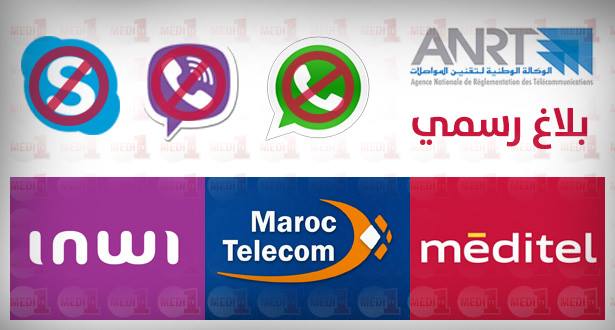In another sign of the anger over Skype blocking, the Maroc Web Awards were thrown into chaos when participants withdrew in protest against Morocco’s telecom providers
The story on Morocco World News will cause further embarrassment for the telecom providers who have blocked VOIP calls without providing an alternative. To make matters worse, the providers are the contest's sponsors. Ironically, the Maroc Web Awards are considered the biggest competition involving the creative talent of youth in the MENA region. Its goal is to promote digital arts and creativity.
Writing for the prestigious news website, Youssef Igrouane, reports that amid the acute indignation over the bans on Skype, WhatsApp, Viber, and Facebook, most participants in the annual Maroc Web Awards (MWA) are withdrawing due to the suspension VoiP services. The Telcos made the suspension effective on Friday.
The participants announced their withdrawal on Facebook, expressing their dismay towards the telecommunications triumvirate, which they say regard their consumers as “sheep.”.
Bilal Aljouhari, a Moroccan YouTuber who was a MWA nominee in the “Personality of the Year” category, announced his withdrawal on Facebook on Saturday. “I can’t participate in a competition that is sponsored by companies that does not care for its consumers, and because of the their decision to ban VoiP services. This is some sort of sick joke,” he said.
After Aljouhari, the withdrawals just kept coming. Marouane Lamharzi Alaoui, a Moroccan engineer, Carte.ma’s CEO, and nominee for the “Video of the Year,” also announced his withdrawal on Facebook. He was nominated for his epic video entitled “From Sahara to the Sky.”
 |
| Marouane Lamharzi Alaoui |
Alaoui apologised to his voters and organisers for not proceeding with the competition.
The engineer also suggested launching a campaign to file a lawsuit against the regulator ANRT, stating that the ban of the VoiP services is “illegal.”
Social media users launched a campaign to express their anger at the decision to block VoiP services by disliking the official pages of the telecom companies on Facebook.
24 hours after the campaign was launched, the number of the telco's fans have been greatly reduced.
The number of Maroc Telecom’s fans decreased by 163, 674 likes, Inwi by 137,364 likes, and Meditel by 528,415 likes.
With the mounting backlash against the telcos, it will be interesting to see how they, or the regulator ANRT, react. Will they simply try and tough it out, or will they realise that this is a fight that does them no credit.
SHARE THIS!

































